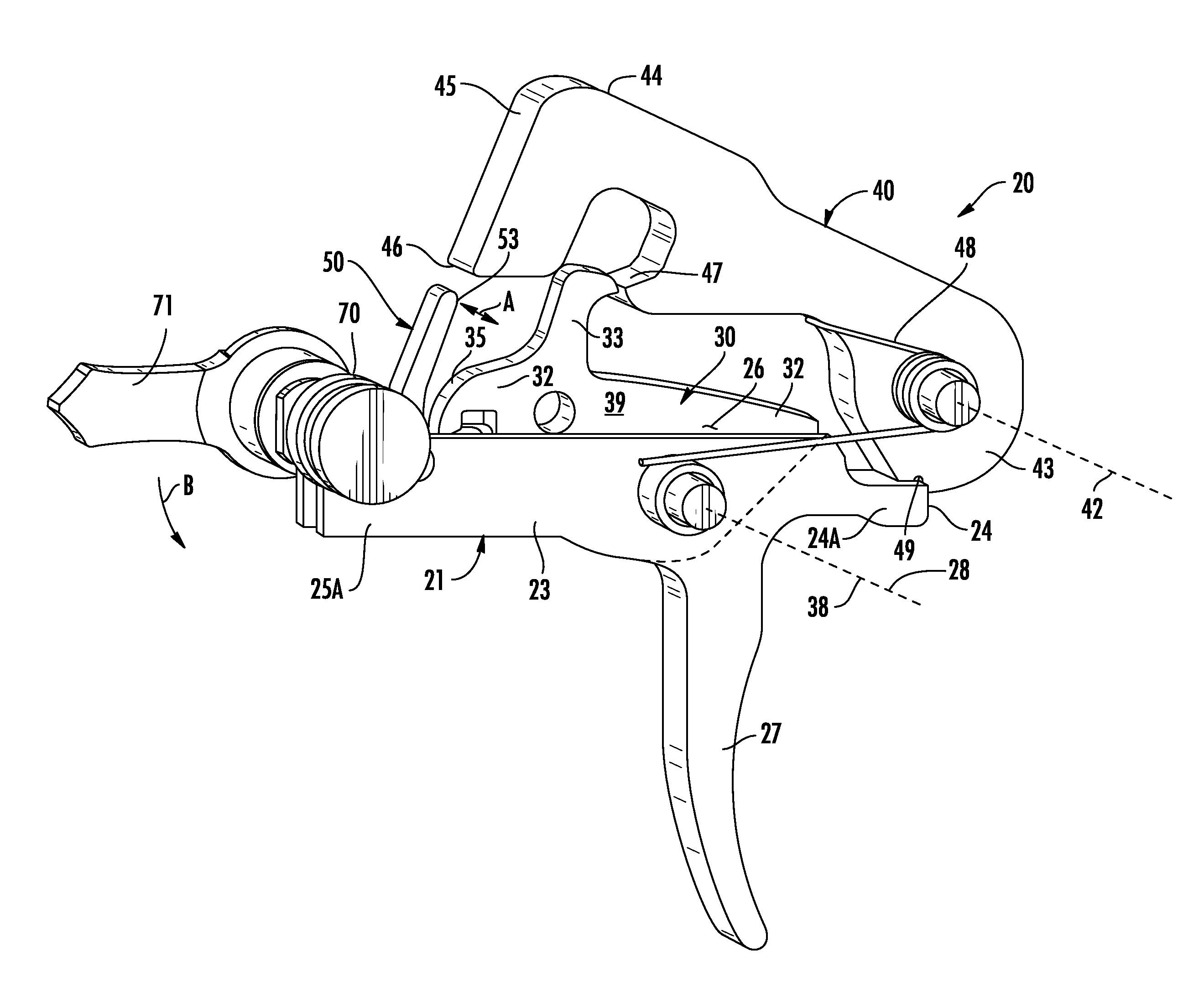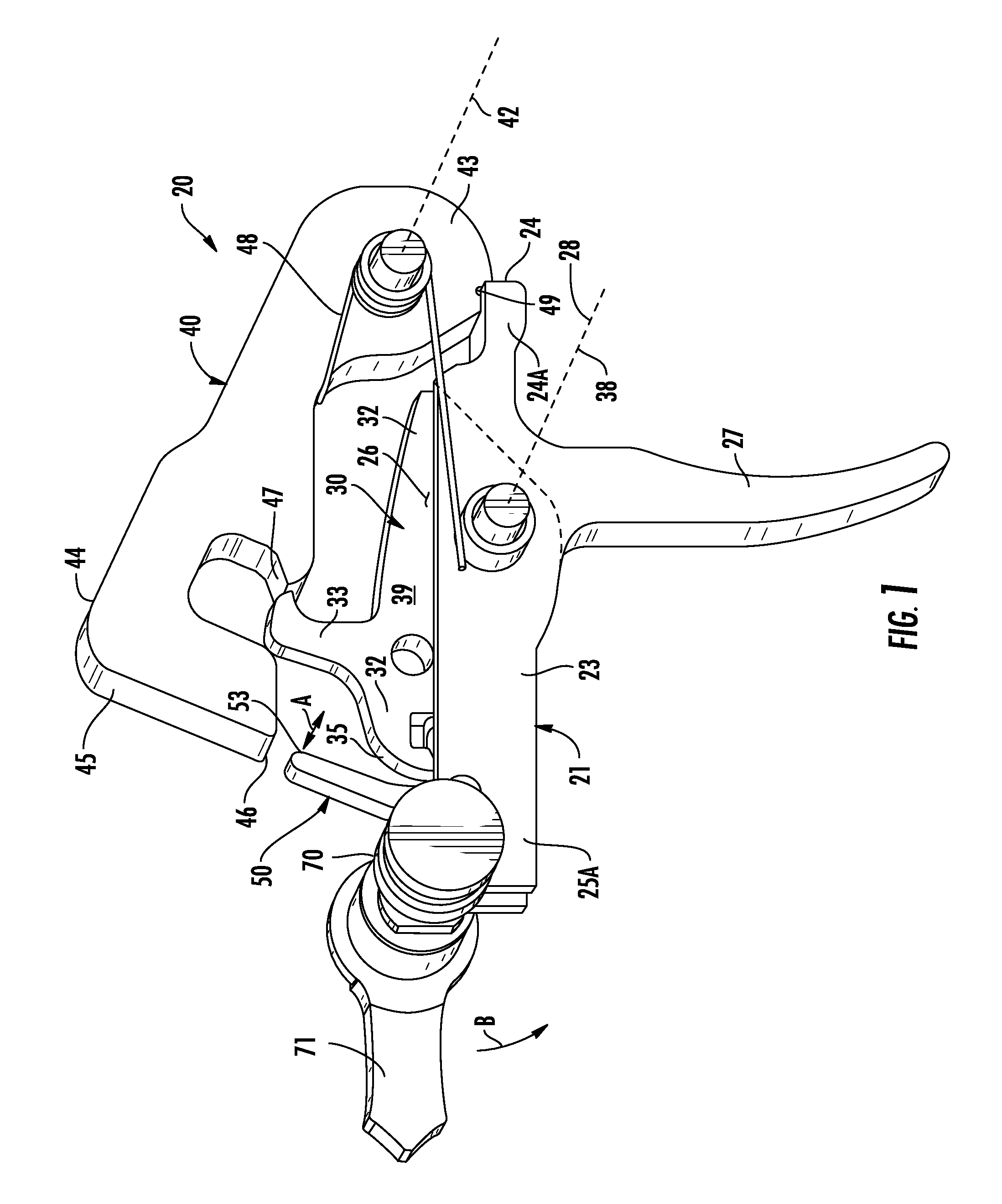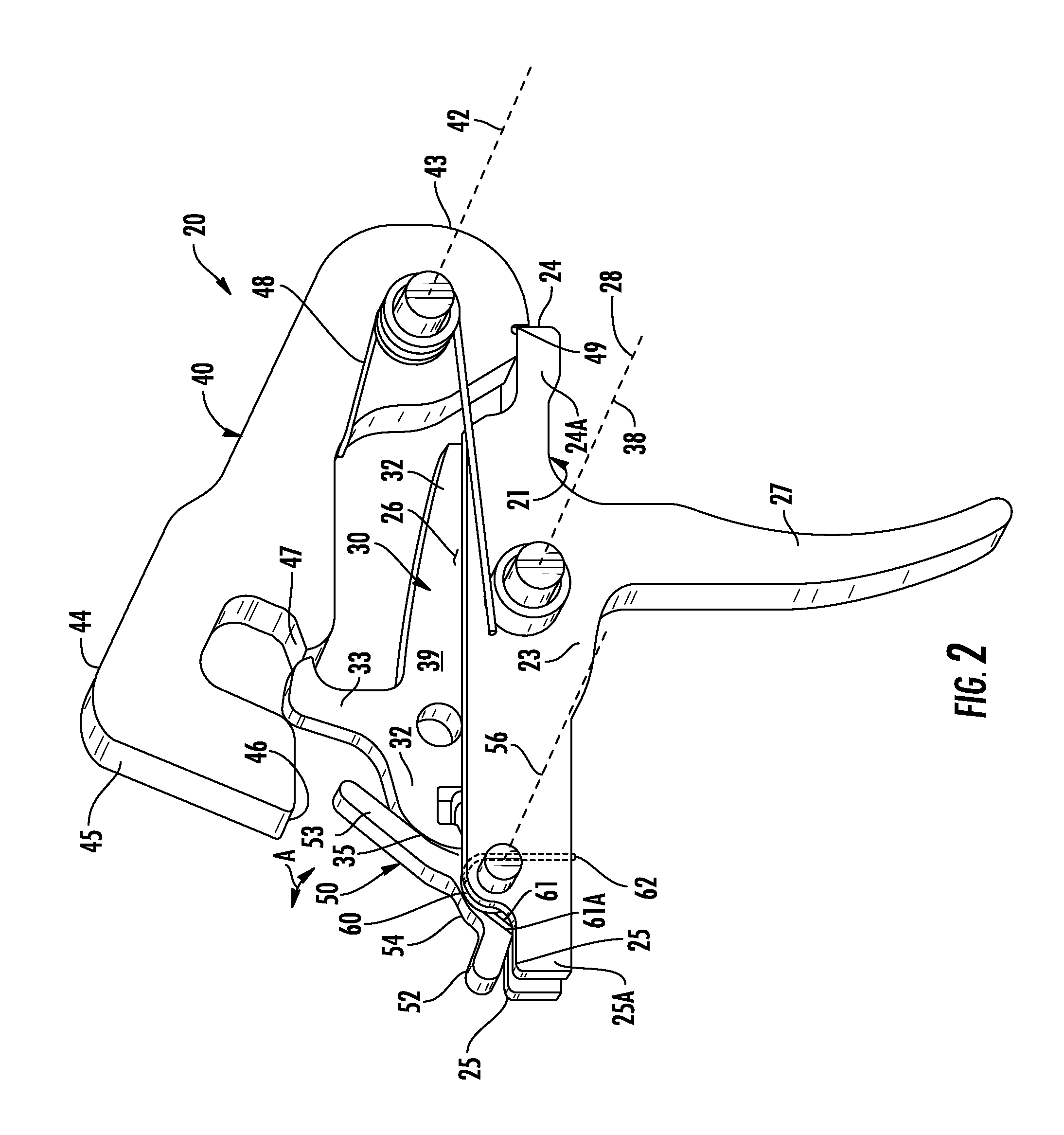Trigger mechanism
a trigger mechanism and trigger technology, applied in the field of trigger mechanisms, can solve the problems of insufficient satisfaction of shooters, inability to repeat trigger pulls in semi-automatic mode of operation, and inability to achieve repeated trigger pulls
- Summary
- Abstract
- Description
- Claims
- Application Information
AI Technical Summary
Benefits of technology
Problems solved by technology
Method used
Image
Examples
Embodiment Construction
[0025]Known trigger mechanisms used with various semi-automatic firearms that fire a single round each time the trigger is pulled and that have select fire capabilities that permit selection between safe and semi-automatic modes of operation include a trigger assembly having a trigger, a hammer having a sear hook, a disconnector, and a sear assembly. Operation of such a mechanism is well known to those skilled in the art and will not be described in detail, other than to describe how, after firing, the hammer is pivoted rearwardly by the action of the bolt carrier. As the hammer is moved to a cocked position and beyond to a past-cocked position, from the cocked position the hammer disconnect notch clips past the disconnector hook of the disconnector and over-travels to the past-cocked position where the portion of the hammer having the sear hook strikes the disconnector which in turn imparts the energy from the striking hammer to a rear portion of the trigger assembly, causing the t...
PUM
 Login to View More
Login to View More Abstract
Description
Claims
Application Information
 Login to View More
Login to View More - R&D
- Intellectual Property
- Life Sciences
- Materials
- Tech Scout
- Unparalleled Data Quality
- Higher Quality Content
- 60% Fewer Hallucinations
Browse by: Latest US Patents, China's latest patents, Technical Efficacy Thesaurus, Application Domain, Technology Topic, Popular Technical Reports.
© 2025 PatSnap. All rights reserved.Legal|Privacy policy|Modern Slavery Act Transparency Statement|Sitemap|About US| Contact US: help@patsnap.com



